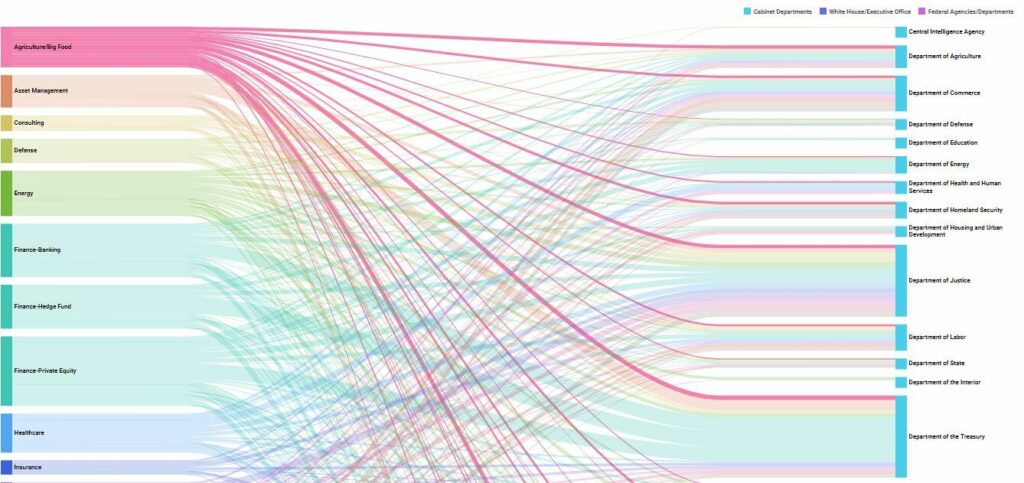The Biden White House’s picks have held up well under scrutiny over the so-called “revolving door” between government and big business. “Biden has proven to be the least-captured and most public-oriented president of any of our lifetimes,” said the Revolving Door Project, an initiative of progressive think-tank CEPR.
The “revolving door” refers to corporate leaders appointed to administrative positions where they determine regulation of industries where they have significant conflicts of interest. At the start of his term, Donald Trump signed an executive order prohibiting his officials from working as lobbyists in the relevant industries for five years after leaving the White House. He cancelled the measure with another executive order on his last day in office.
But the issue is not normally a partisan one. Bill Clinton did exactly the same thing as Trump when he left office in 2001, while Obama hired 70 registered lobbyists after running on a campaign to do the exact opposite.
How progressive is Biden’s White House?
Biden is so far stacking up relatively well. The Revolving Door Project gave him a B- in their “Corporate Capture Report Card”, noting, however, that “the bar is low.” Allies of Big Tech, Wall Street, Big Pharma, the military industrial complex, and the fossil fuel industry are part of his administration, but more often in “advisory” roles rather than as heads of agencies.

A portion of CEPR’s visualisation of the White House revolving door. Full image and data available: https://therevolvingdoorproject.org/personnel/
Biden’s strongest points have been the nomination of independent voices like Rohit Chopra and Gary Gensler to head financial regulation. According to CEPR, “By all reports, Wall Street banks are apoplectic that their new overseers have both significant issue-area expertise and an historic streak for independent scrutiny of abusive practices.”
On fossil fuels, Biden’s appointment of Native American Deb Haaland as Interior Minister is expected to be a strong hindrance to resource extraction on public lands. Haaland is known as a supporter of the Green New Deal.
On technology, the key decisions are yet to be made, with several anti-trust and intellectual property-related positions remaining vacant. Several of the appointees so far, including Attorney-General Merrick Garland, have personal connections with Amazon.
Xavier Becerra, a supporter of women’s health and reproductive rights, heads up Health and Human Services. But as with Big Tech, the choice of intellectual property and anti-trust regulatory heads will be crucial to the final balance in regulating health insurance and pharmaceutical companies.
The situation regarding the military-industrial complex is less pretty. The new Defence Secretary, Lloyd Austin, is a former board member of Raytheon. A number of alumni of a think-tank funded by weapons manufacturers have also made it onto foreign policy teams.
Still, on domestic policy at least, CEPR concludes, “Biden’s executive branch has seen genuinely enormous strides against corporate corruption.” They credit his picks as “a genuine sea change from the neoliberal era of the 1980s-2010s.”
Follow Christian on Twitter for more news updates.
Feature image courtesy of Finance Watch.